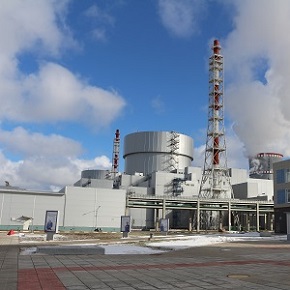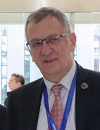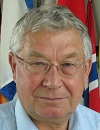 |
||
|
Rosatom Superconductors Successfully Tested for Future Colliders TVEL, PUBLISHED 16.06.2021 The European Organization for Nuclear Research (CERN, Switzerland) has successfully completed the acceptance testing of Russian-made niobium-tin superconductors made in the framework of the Future Circular Collider (FCC) CERN Conductor Development Program. The design of superconducting strands and their manufacturing technology were developed at the Bochvar Institute in Moscow, while the 50 km long qualification batch of strands was manufactured at the Chepetsky Mechanical Plant in Glazov, Udmurt Republic (both enterprises are subsidiaries of TVEL Fuel Company of Rosatom). The tasks were completed under the agreement between TVEL and CERN, and based on the successful testing results, TVEL results as a potential future supplier of wire for high field magnet accelerator programs. The high performance of the wire fully complies with the CERN specification. CERN has also produced Rutherford cables with the delivered wires. The tests have achieved the record-breaking results for the Russian superconductivity technologies, including the critical current density in electromagnetic field, residual resistivity ratio, as well as effective diameter of the strand. The magnet system is one of the key elements of the "Collider of the future". The FCC's termendous dimensions (its circumference is about 100 km) would require significant supply of superconducting strands, which can only be provided through joint efforts of the countries possessing such technology (according to professional assessments, the FCC's needs for superconductors would greatly exceed the existing global capacities of the niobium-tin strand production). At the same time, the potential future construction of the FCC, which is proposed to be in Switzerland, is a key international project of the global scientific community. Its implementation would allow scientists to bring fundamental research in elementary particle physics to a new level. In particular, it will help understand the nature of dark matter, the antimatter-matter asymmetry in the observable Universe, and other issues beyond the framework of the so-called Standard Model of modern physics. Differently from Rosatom's superconductors for the ITER project, the strands for the FCC have been developed based on the internal tin source method, allowing for manufacturing a strand with significantly higher critical current density, which is necessary for modern magnetic systems for accelerators and high-energy physics systems. "Researchers and engineers of the Fuel Division of Rosatom have once again proved their high class expertise in superconductivity by developing a technology and manufacturing a product featuring advanced world level performance in a short time. We are proud that our superconductors will make possible the implementation of the major Russian and international megascience projects, such as FCC, ITER, NICA and FAIR. In addition to niobium-tin strands, we are also developing niobium-titanium strands for the Future Collider, as well as ultrapure resonator niobium, which will be required to manufacture the collider accelerating systems", Natalya Nikipelova, President of TVEL JSC, commented. Applied superconductivity is one of the strategic fields of non-nuclear technology developments at TVEL. In addition to fundamental science projects, low-temperature superconducting materials are indispensable for development of modern medical equipment (magnetic resonance imaging systems), as well as for analytical equipment of high and ultra-high resolution, such as NMR spectrometers. A task of primary importance for the superconductivity technologies development is development of high-temperature superconducting materials, which will significantly improve the performance of conventional electrical and power industry devices. Topics: TVEL Other news: Construction of Akkuyu NPP Unit 3 Begins A ceremony commemorating the start of Unit 3 construction was held at the site of the first Turkish nuclear power plant Akkuyu. TVEL Elemash Machine-building plant launches new manufacturing site for CFR-600 fabrication The dummy fuel bundles for CFR-600 are already manufactured for testing. All spent fuel was unloading from SFP-3 at Fukushima Daiichi NPP SFP-3 and SFP-4 are free of fuel now. |
Hero of the day 
Unit 6 of Leningrad NPP commissioned for commercial operation On March 22, 2021, VVER-1200 reactor-enabled Unit 6 was commissioned at the Leningrad NPP. Andrey Petrov, Director General of Rosenergoatom (part of the Electric Power Division of ROSATOM), signed the corresponding order. INTERVIEW
Vladimir Kriventsev OPINION
Victor Murogov |

